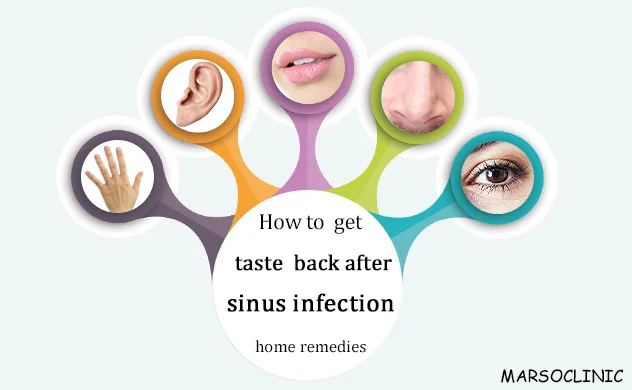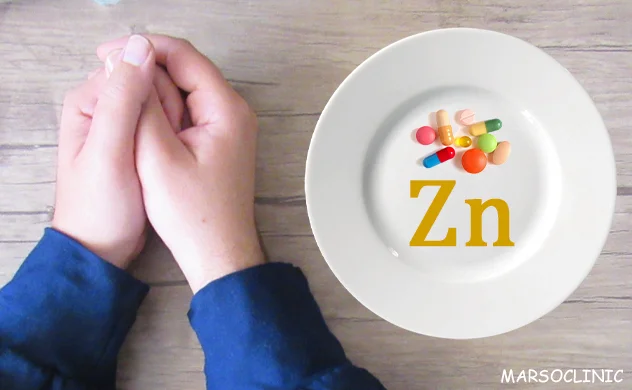
Associate Professor of Orthopedic expert,Brigham Hostpital
Every year, 2,000 people around the world recover from a specific illness that cause sense or smell olfactory or taste impairment. So, if you have lost your sense of taste due to inflammation or infection of your sinuses, you do not need to worry or panic! In the following we will teach you some home remedies through which you can get your taste back after sinus infection.
Before we talk about home remedies to restore the sense of taste, it is necessary to understand that in order to enjoy a food or snack, you need a healthy sense of smell as well as a healthy sense of taste. This is because in almost all people, experiencing taste impairment is because of problems in the olfactory system rather than taste receptors. In other words, lack of taste due to a problem in taste receptors in your tongue known as Ageusia is very rare.
Among all other causes, the inflammation or infection of the sinuses affecting the proper functionality of the olfactory system is the most common reason of losing taste sense. However, it should be noted that some viruses like COVID-19 can also affect the olfactory system causing taste impairment making people to lose their sense of smell.

What factors can affect your senses of taste and smell?
Influenza and other viruses that cause common colds can be associated with impaired smelling and therefore taste. Nasal congestion, sneezing and coughing, are other symptoms of these viral infections.
In most cases, your sense of taste will return to normal as the disease or viral inflammation that has affected the sinuses goes away.
Respiratory tract allergies can cause sinus and airways inflammation. As a result, olfactory involvement and taste impairment can be expected in such cases.
Inflamed sinuses (due to viruses, allergies, etc.) are other reasons that can cause taste and smell impairment.
A person with lots of nasal polyps, located near the orifice of sinus, may experience inflammation and recurrent sinusitis due to the frequent obstruction of the only normal way for the sinus discharges to exit.
These people may experience a loss of smell and taste following a sinus infection. Polyps can be removed by a specialist physician with an outpatient endoscopic surgery without the need for anesthesia and hospitalization. But you should have in mind that nasal polyps can recur even after surgery.
According to the global epidemic of covid-19, it is estimated that about eighty percent of infected patients experience some sort of smell and taste loss. Inflammation and congestion in the nose, sinuses, etc. can be the cause of taste and smell losses but direct damage to the olfactory nerves has also been observed frequently in covid-19 patients.
As the patients get better, they often regain their lost sense of taste and smell gradually. However, it may not be the case for all patients.
Other causes for losing the sense of smell and taste are as follow:
-
Chemotherapy
-
Radiotherapy
-
Alzheimer's disease
-
Oral problems
-
Gum disease
-
Tooth and gum infections
-
Lack of oral hygiene
-
Tooth removal
-
Antihistamines
-
Some antibiotics
-
Cholesterol lowering drugs
-
Some psychiatric medications
-
Some blood pressure medications
-
Some medications used in bladder disorders
-
Medications that are associated with dry mouth usually interfere with the sense of taste.
Zinc deficiency:

Zinc is an essential element for our sense of smell and taste. Women need to receive eight milligrams of zinc daily. This amount is eleven milligrams in men. Zinc is found in chicken, red meat, and whole grain breads.
Gradually reduces the sense of smell and taste.
In addition to the above factors, smoking, tongue damage and burns, as well as alcohol consumption can reduce the sense of taste.
How to restore the sense of taste with home remedies and treatments?
Generally, With the improvement of inflammation and sinus infections, the sense of smell and taste is expected to return. To accelerate this process, in addition to drug treatments that include decongestant sprays (used to open blocked or stuffy nose), nasal drops and antibiotics that are prescribed for bacterial sinus infections, home remedies can also be used as explained below:
This will keep your oral mucosa moisty. Keeping your mouth and nose moisty enough will prevents harmful particle from getting in direct contact with the taste and smell sensation buds (receptors) on the tongue and nose. Moreover, moisture helps us feel the food tastes better. Finally, drinking enough water helps to get rid of sinusitis faster.
-
Use artificial saliva
-
Brush before and after eating
-
Use cold foods
-
If you have dry mouth, be sure to drink water and fluids with your meals
-
Eat only when you are hungry
-
Use more spices
-
Eat variety of foods
-
Avoid consuming very hot foods and liquids
-
Limit alcohol consumption
-
Limit smoking
-
Eat slowly
-
Chew foods well
-
Use castor oil
The anti-inflammatory properties of castor oil accelerate the restoration of the sense of smell and taste. For this purpose, you can:
- Heat a little castor oil in the oven
- Pour a drop of pure castor oil into each nostril
- Repeat this process twice a day to improve your taste and smell.
Beat two to three cloves of garlic and pour it into a cup of boiling water, strain the mixture and drink.
Ginger has many anti-inflammatory properties and improves inflammation and sinus infection. Ginger also stimulates the taste buds. You can eat a little bit of fresh ginger powder or a small piece of ginger at daily intervals. You can make your tea with ginger by using half a spoon of ginger powder and a little salt. Let your tea rest for half an hour before drinking.
Using warm steam vaporizer and inhaling warm and humid air can relieve congestion in your sinuses and help restore your sense of taste and smell.
You can also use mint or eucalyptus extract in your incense, twice a day and use hot and humid steam vapor for a few minutes each time.
Citrus aroma, especially lemon, is effective in restoring the taste and smell. You can smell the lemon or take the juice of a fresh lemon and mix it with a glass of warm water and drink it. You can sweeten the mixture with a little honey and drink twice a day.
Drink a slice of lemonade between your meals. This will stimulate and strengthen the taste buds. Smelling the essence of lemon is also useful.
Add a tablespoon of apple cider vinegar to half a glass of warm water. Add the tip size of a teaspoon of baking soda to the mixture and enjoy the drink. You can drink this mixture twice a day. Similar to ginger and lemon, apple cider vinegar helps to stimulate taste buds.
In addition to using cinnamon in your food, you can mix cinnamon powder and honey and keep it in your mouth for ten minutes, then rinse your mouth with water. Repeat this twice a day.
Swirl a tablespoon of coconut oil in your mouth for ten to fifteen minutes, then pour out the oil and brush. This can be repeated before each meal. Sesame seed and olive oils can also be used. Be careful not to swallow the oil.
You can also drink a cup of decoction twice a day.
If you have sinusitis due to a cold or an infectious agent, try to get enough rest.
Pour fresh mint leaves in a cup of warm water, stir and drink. Repeat that twice a day.
Chicken and meat contain large amounts of zinc.
And in the end, it is better to have some physical activities before eating. A ten-minute walk or exercise will improve the sense of smell and taste.
When should you see a doctor?
If you experience any of following signs do not hesitate to see your doctor:
- If your taste loss has lasted for a long time and has not responded to the usual home remedies
- If you have other symptoms beside taste loss
- If it happens after taking any new medication
- If it has happened suddenly